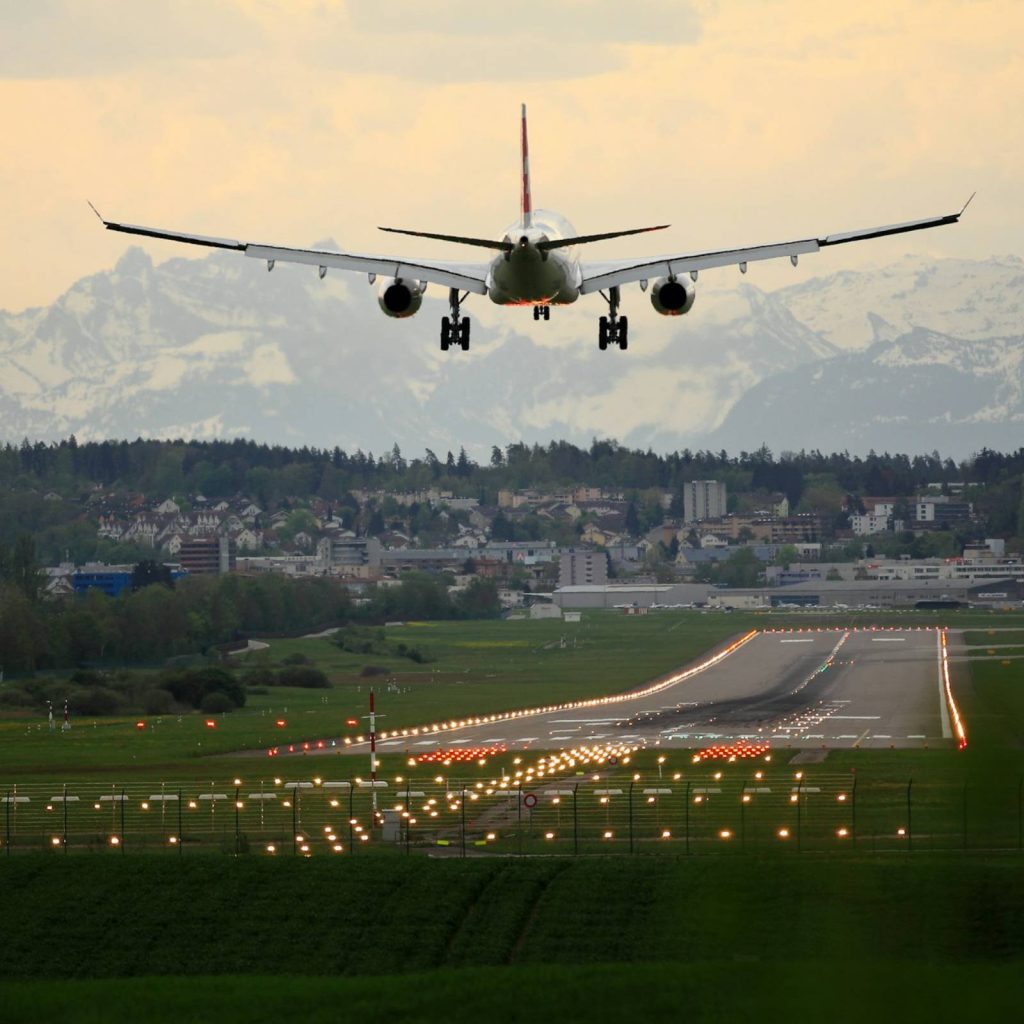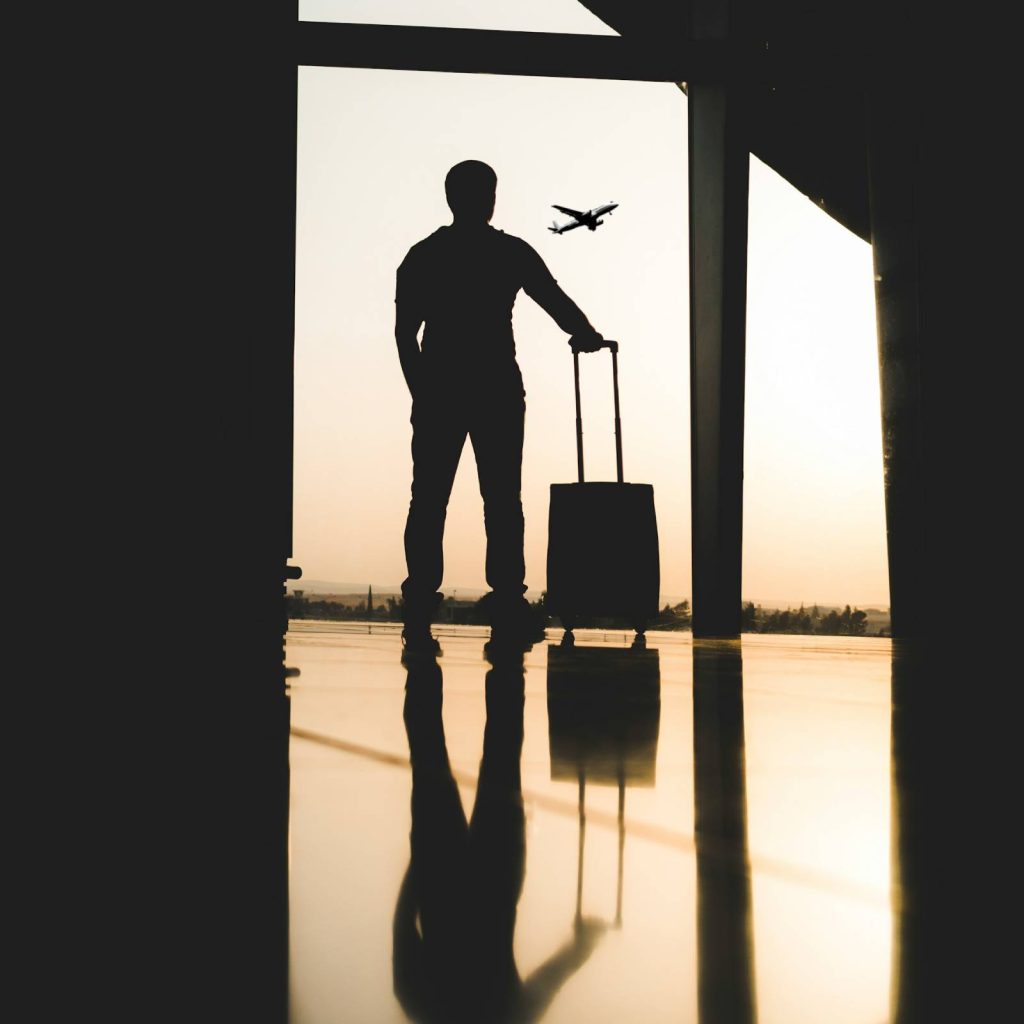
If you are a true Singaporean, you’re likely planning your next trip abroad right now. In a Google study last year, Singapore ranked first worldwide in online searches on travel-related topics. According to UN data, Singaporeans spend an average of SGD4,000 per trip. Which is the third highest globally. Interestingly, the Google study also revealed that we rank in the top 10 for queries about sustainable travel practices and strategies. Apparently Singaporeans are conscious about their carbon footprint and are keen to do their part in saving the planet.
It doesn’t take a climate scientist to point out the contradiction here, or to understand why tourist travel—and never mind the sustainability of tourist accommodation, or the wider impact of tourism on some destinations—is under attack. Tourism is estimated to account for some 10 per cent of global emissions every year, with efforts around the world to curb our enthusiasm for jumping on planes now especially prevalent.
It's a complex conundrum and not an uncontroversial one, not least because, as Marina Novelli, director of the Sustainable Travel and Tourism Advanced Research Centre, UK, notes, there is little clarity on the methods used to assess quite what the situation is, and then a plethora of different terminologies to obscure the results.
“Everyone is now talking about ‘regenerative travel’,” she says. “What does that even mean?” Nonetheless, the proposals have been radical. Take, for example, Australian “responsible travel” operator Intrepid Travel’s proposal of the imposition of so-called carbon passports: these would limit holders to a certain number of international flights—or travel over a certain distance—over a certain timeframe.
More ardent climate campaigners arepushing for a future in which everyone limits their total carbon emissions to 2.3 tonnes each year; that amount is to keep the predicted global temperature rise within a manageable range. That would, in effect, also dial back international tourism in a major way: 2.3 tonnes is just about enough to fly from London to New York and back. And that’s just the once.
Of course, lest we forget, international travel is already an elitist activity: most people do not regularly take international flights, and many people never have. A 2020 study by Stefan Gossling of the Western Norway Research Institute estimates that only around four per cent of the global population flew internationally at all in his sample year of 2018. But he also found that, conversely, one per cent of the world population emits 50 per cent of the CO2 from commercial aviation.
Among the top CO2 emitters, air travel is the consumption category with the highest carbon contribution. No wonder there are proposals for airlines to re-think “frequent flyer” rewards. And that’s just the least of it. There are widespread calls for the tourism industry—which, self-regulating as it is, isn’t quick to impose painful changes on itself, especially when it’s just getting over the downturn of Covid-19—to get its emissions house in order.
But as Brendan Canavan, senior lecturer in marketing and tourism at Nottingham University Business School, UK, points out, the broad “greening” of hotel accommodation—the shift to renewable electricity, improved recycling, better use of waste water, more efficient practices in relation to laundry and food and beverage services, ensuring tourist dollars flow into the local economy and the employment of local people—is all relatively simple.
The seemingly insurmountable headache is getting people to those destinations in the first place. Inevitably many are looking to technology to solve this problem, even if many experts are quick to dismiss existing proposals for the electrification of long-range, high-capacity aircraft as a pipe-dream, while aviation bio-fuel faces, among other challenges, that of being hard to scale—at least not without repurposing land to grow feedstock crops that might be better used for growing actual food.
Three years ago, a company called Zero Petroleum unveiled what it says is the world’s first fully sustainable fuel. It has since won a Guinness World Record by using its fuel to power an aircraft—it was the first use of a completely fossil-free fuel in aviation history—and won a contract with the Royal Air Force.
Airbus and Boeing are both on board too, and unsurprisingly: Zero Petroleum’s system involves processing hydrogen—extracted from water by electrolysis using, ideally, renewable electricity—together with carbon—taken from carbon dioxide in the atmosphere by direct air capture. The result is a synthetic fuel, made from a limitless and free feedstock: air and water. With a few minor tweaks it can go straight into a car’s combustion engine or an aircraft’s jet engine.

“[Long-distance travel] has been wholly dependent on fossil fuel energy and we need to change that. Many people fear that doing so will be extremely hard and fantastically expensive. But that’s not true,” argues Zero Petroleum’s co-founder Paddy Lowe, the ex-chief technical officer for McLaren’s, Williams’ and Mercedes’ Formula One teams.
“Synthetic fuels will replace fossil fuels eventually, and soon if we see the same kind of rapid progress we’ve seen in other technologies. It wasn’t that many years ago that solar power was seen as this quaint, tree-hugging idea fora hobbyist industry. But its momentum has proven momentous, as has the fall in its costs. The same will happen with synthetic fuels.
”Well, eventually. Also unsurprising is that Lowe, “if I had my moment at COP,” as he puts it, would like to see a global ban on all new oil discovery, or CO2-reduction targets applied to aircraft and shipping as well as cars: less to put the boot into the fossil fuel industries, as to spur investment in, and efforts to deliver, synthetic fuels that much faster. Without these, he worries, tech that could solve aviation’s sustainability problem will likely not come fast enough to meet climate targets.
And that’s especially so with tourism growing in the meantime, thanks largely to an expanding global middle-class, with the populations of many huge countries—India, for example—only recently coming “online” for the international travel market. According to the World Tourism Organisation, transport-related carbon emissions are predicted to rocket by 25 per cent over the next five years alone. SAF is a “supply side” solution.
France in 2023 banned most short-haul domestic flights outright, with Spain and Germany considering similar moves. Taxes have also been proposed, essentially to make certain flights prohibitively expensive: Belgium has already introduced heavy taxes for short-haul flights. Others have suggested that aircraft emissions need to be brought within the Paris Agreement—remarkably, they fall outside of the 2015 international treaty to limit climate change—so they’re part of national carbon budgets.
Others have called for the enforcement of some kind of carbon-off setting of all flights—though the whole idea of carbon-off-setting has been widely debunked as corrupt or ineffective, especially in terms of actually reducing emissions. Such moves are in part designed to encourage, among the things, the taking of trains over planes, especially given how, in many parts of the world, rail networks are already fully-electrified (albeit not necessarily through the use of renewables).
But Professor Kathleen Andereck, researcher into sustainable tourism at Arizona State University, points out this will require considerable subsidies and investment to make rail travel attractive, in terms of efficiency, price and the interconnectivity of different national systems. “And I’m not sure there is the political will to do this anyway,” she adds. “The trains here in the US, for example, are terrible”—even in a country where an electrified rail network could be a game-changer for travel across the Americas.
Rail service is very good in pockets across Europe. South Korea and Japan are investing heavily in upgrading the irrail networks but, of course, try getting to Japan without a flight first. Travellers might, alternatively, be persuaded to fly less often but stay longer at their destinations, as the idea of “slow tourism” proposes. But again, this can sound more ideal than real: even in an age of increased remote working, most people have precise and limited windows in which they can grab a holiday.

This isn’t to say flying has to stop, even if Canavan argues that “while the itch to travel is one that has to be scratched, which is one reason people will be very reluctant to give up tourism”, restrictions will be required if it’s to become more sustainable: and he, for one, would restrict cruise-ships and private aviation to start with. “My worry is that restrictions will fall on the wrong people—the middle-class majority, those who fly for a couple of holidays a year, which seems to me to be acceptable in sustainability terms—while the rich will always find ways around them,” he suggests.
“There are no easy answers here,” agrees Paloma Zapata, the CEO of Sustainable Travel International, a US think-tank helping the industry decarbonise, “but we should remember that we’re only at the very beginning of the process of making travel sustainable. And that the great merit of tourism is that it helps to create a more tolerant society and is an important part of humanity, and that [tolerance] will continue to grow as more people become able to travel. We each have to think in terms not of stopping long-distance travel but being more aware of the cost: so that we might choose to take a long flight this year, but not next, for example. We all have to cherish tourism for it to be sustainable”.
Or, as Andereck puts it, “while a lot of people will disagree with me on this, leisure is a right but travel isn’t. It’s a privilege. We all need to acknowledge that.” So it looks as though the more immediate drive for change will come through encouraging us to—sorry,Singaporeans!—at least, rethink our travel, to travel wiser. Social media influencers—and travel being co-opted as yet another form of status signalling—have certainly persuaded us to think in terms of the longer the distance travelled, the more exotic and the more valuable the travel experience.
Since long-distance return flights of over 15,000km—Singapore to London, for example—are by far the most polluting, and are predicted to quadruple by 2050, travelling closer to home instead could be made cool again. While in the future younger generations may be more inclined to track their carbon emissions much as today we might track our calories or our daily steps; the truth is that most people have no idea what their carbon emissions are, or what that means.
Sweden has its “flygskam” (“flight shame”) and “tagskryt” (“train brag”) movements, for instance. But will travel behaviours really change for the better of the planet, rather than for the better of one’s holiday plans? “Attitudes to tourism do change, after all,” notes Ross Bennett-Cook, a researcher in mass tourism at the University of Westminster, UK.
“People likely wouldn’t post pictures of themselves riding an elephant on holiday these days, for example. People are more consciousof their travel image now, and are ready to pick others up on it too. I wrote an article about sustainable travel and people noticed that I had written it from Columbia. So [even though I am researching this field] I’m as guilty as the next person.”
And, another big question, since so many national and local economies around the world are dependent on tourism—it supports an estimated 10 percent of global GDP and growing, and one in 10 jobs worldwide—is just putting the brakes on it really the answer? Canavan says the worry is that reduced tourism will drive economies to embrace other more carbon-intensive industries instead.
What’s needed, argues Ben Lynam, head of strategic communications at The Travel Foundation (the research and policy advocacy organisation that worked with the United Nations to launch the Glasgow Declaration on Climate Action in 2021) is much more systemic disruption. More flexible working and school patterns, for example, or much greater ease and transparency in booking end-to-end journeys with minimal emissions, perhaps powered by AI.
We also need, he emphasises, to just get real. “The fact is that we can’t put [solving this challenge] down to the individual traveller,” says Lynam. “I mean, hats off to anyone who is trying to make changes to the way they travel themselves, but the idea that you can convince many millions of people to behave in the same [progressive] way is a non-starter if we’re being realistic, even if travel is going to get more expensive.
“Really,” he adds, “it’s unhelpful to think of the solution to the problem of making travel sustainable as being about either technology or behaviour change, because neither are going to happen, at least not any time soon. This is a situation that needs global ownership and governance and [as with addressing climate change more broadly] we know how hard that is to bring about.